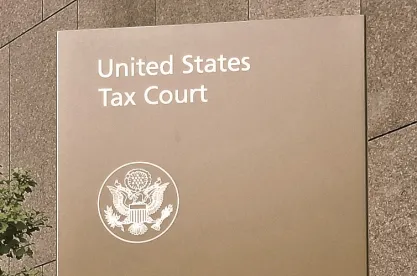Last summer, the Supreme Court of the United States held that the 30-day time limit to file a Collection Due Process (CDP) petition is a non-jurisdictional deadline subject to equitable tolling (Boechler, P.C. v. Commissioner). (Our prior discussion of Boechler can be found here.) The natural follow-up issue was whether this holding extended to the 90-day limit for deficiency petitions.
On November 29, 2022, in a unanimous 17-0 opinion in Hallmark Research Collective v. Commissioner, the US Tax Court held that the 90-day time limit is jurisdictional not subject to equitable tolling. The taxpayer in that case filed its deficiency petition one day late but argued that the 90-day limit is non-jurisdictional under Boechler and that it should be allowed to show cause for equitable tolling of the limitations period.
The Tax Court analyzed the relevant statute (Internal Revenue Code (IRC) Section 6213(a)) and found that the statutory text, context and relevant historical treatment all confirmed that the 90-day time limit clearly provided that the deadline was jurisdictional. Its analysis started with the US Constitution and tracked the deficiency procedures from the days of its predecessor (the Board of Tax Appeals) through various statutory changes and the overall framework of the procedures. Based on its analysis of almost 100 years of statutory and judicial precedent, the Tax Court concluded that it and the US Courts of Appeals have expressly and uniformly treated the 90-day time limit as jurisdictional, and the US Congress was presumptively aware of this treatment and had acquiesced in it.
The Tax Court rejected the taxpayer’s arguments to the contrary. It noted that the Supreme Court in Boechler rejected the analogy of the statutory 30-day limit for a CDP petition to the statutory 90-day limit for a deficiency petition. The Court also provided separate reasons why the statutory 30-day time limit was different, both in its text and in prior judicial constructions from the 90-day time limit.
Practice Point: The Tax Court’s opinion in Hallmark will not be the last word on the issue, and we expect further developments in this area. Additionally, there are other types of petitions that can be filed in the Tax Court (e.g., so-called “innocent spouse” petitions filed in non-deficiency cases) that contain language different from the statutes addressed in Boechler and Hallmark. We will continue to follow this area and provide relevant updates as they develop.




 />i
/>i
